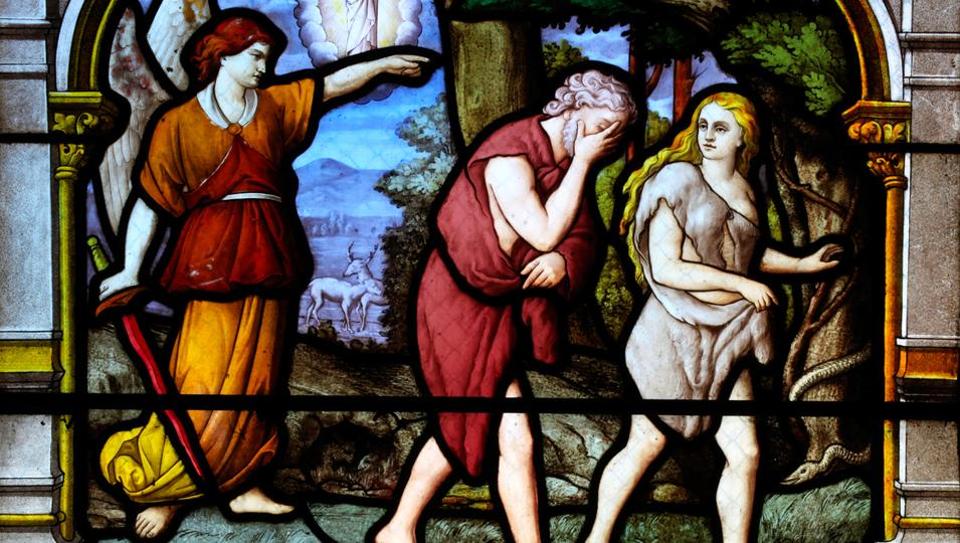According to this principle, individuals feel an obligation to comply with those who are in real or perceived authority positions.

The first book of the Bible describes how failure to obey the ultimate authority resulted in the loss of paradise for Adam, Eve, and the rest of the human race. Further, we find that Abraham’s ready to sacrifice his only son to God without any explanation.

We learn in this story that the correctness of action is to be judged not by such considerations as apparent senselessness, harmfulness, injustice, or traditional moral standards but by the mere command of a higher authority.
There are three symbols for authority:
- Title
- Clothes
- Trappings
Titles: Dr., Prof., Ph.D., President, Chairman, Founder, CEO, Industry experts
The importance of titles and the deference they’re given can have frightening effects on the medical community. One study from the Midwest demonstrated that 95 percent of nurses were willing to unquestioningly comply with orders to give dangerously high doses of medication to patients, as long as the order came from someone who claimed to be a “doctor.” Titles are symbols of authority, especially skilled professionals like doctors.
Clothes: Uniforms, Suits, religious outfits (worn by pastors, monks, nuns, priests)
Whether it’s a police uniform, military camouflage, a doctor’s lab coat, or even a snappy business suit, uniforms and modes of dress are symbols of authority.
In a study conducted in Taxes, researchers arranged for a thirty-year-old man to cross the street against the lights, against the traffic, and against the law on a variety of occasions. In half of the cases, he was dressed in a freshly pressed business suit and tie: on the other occasions, he wore a work shirt and trousers. The researcher watched from a distance and counted pedestrians who followed the man across the street; 3.5 times as many people swept into traffic behind the jaywalker.
A set of studies offers a reason for the employment – interview results. people judge those dressed in higher quality apparel, even higher quality t-shits, as more competent than those in lesser quality attire- and judgments occur automatically, in less than a second. And a nearly 10% higher starting wage for a job candidate.
Trappings: Accessories that go along with certain positions/roles (e.g. police badges, religious robes, rosaries, expensive handbags, expensive cars, diamond rings, and necklaces, etc)
According to the findings of a study done in the San Francisco Bay area, owners of prestige autos receive a special kind of deference from us. The experimenters discovered that motorists would wait significantly longer before honking their horns at a new, luxury car stopped in front of a green traffic light than at an older, economy model. The motorists had little patience with the economy-car driver: Nearly all sounded their horns, and the majority of these did so more than once; two simply rammed into his rear bumper. So intimidating was the aura of the prestige automobile, however, that 50 percent of the motorists waited respectfully behind it, never touching their horns, until it drove on. Authority influence flows from being viewed as either in authority or an authority. But the first of these types, merely being in charge, has its problems. Ordering people to do things often generates resentment. The second type of authority (which will be discussed later) being viewed as highly informed, avoids this problem, as people are usually willing to follow the recommendations of someone who knows more than they do on the matter at hand.
The second type of authority is Expertise and trustworthiness:
People are likely to say yes to one who is perceived as both expert (knowledgeable on the relevant topic ) and trustworthy ( honest in the presentation of one’s knowledge). To establish their trustworthiness one may admit to a (usually minor) shortcoming of their case, which can be swept aside later by the presentation of outweighing strength.
One may first provide middle negative information about oneself to enhance trust. This creates a perception of honesty that makes all subsequent information seen more believable to observers
The first type of authority, merely being in charge, has its problems, As a rule, people don’t like being ordered to do things. It often generates resistance and resentment. for this reason, most business schools teach prospective managers to avoid command and control approaches to leadership and embrace approaches designed to promote willing cooperation.
The second type of authority, being viewed as highly informed is so useful. People are usually happy, even eager, to go along with the recommendations of someone who knows more than they do on the matter at hand.
Do you use this principle in your marketing or have you witnessed companies using this principle in their marketing? Kindly comment.

